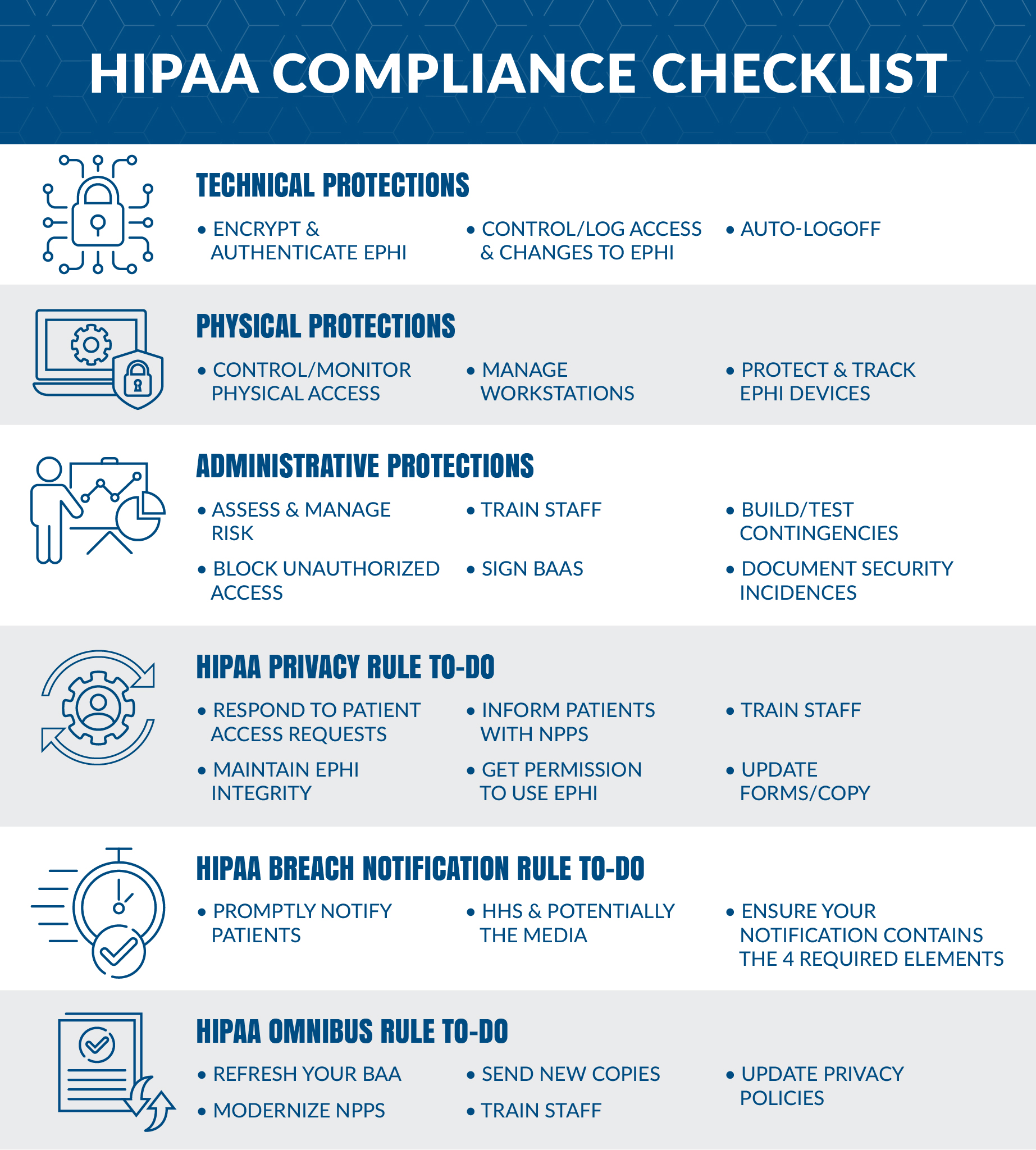The roots of HIPAA stem from the early 1990s when it first became apparent that the medical care industry would become more efficient by computerizing medical records. The Health Insurance Portability and Accountability Acts HIPAA Security Rule requires that all electronic personal health information ePHI must be properly secured from unauthorized access whether the data is at rest or in transit.
 Hipaa Compliance Checklist What Is Hipaa Compliance
Hipaa Compliance Checklist What Is Hipaa Compliance
The Health Insurance Portability and Accountability Act or HIPAA originally known as the Kennedy-Kassebaum Bill is a set of regulations that became law in 1996.

When did hipaa start. The law was passed by Congress and signed by President Bill Clinton in 1996. When it comes to personal information that moves across hospitals doctors offices insurers or third party payers and State lines our country has relied on a patchwork of Federal and State laws. Department of Health and Human Services HHS was tasked with issuing regulations to implement the statute.
These regulations were enacted as a multi-tiered approach that set out to improve the health insurance system. As physicians we value privacy and are held to high ethical and legal standards. Originally passed in 1996 HIPAA was designed to primarily modernize the workflow of health information.
A majority of US state governments recognize Joint Commission accreditation as a condition of licensure for the receipt of. At the time most medical records were in paper form but it was becoming clear that health data would become digital in the future. The result of concerns for protecting patient privacy HIPAA was passed by Congress and signed by President Bill Clinton in 1996.
And as such there are no specific HIPAA rules for social media. The Health Insurance Portability and Accountability Act of 1996 HIPAA was signed into law before the rollout of major social media sites such as Facebook Twitter and Instagram. In addition the industry.
After HIPAAs enactment the US. HIPAAs origins date to the early 1990s as medical records first began being transmitted in electronic form. The international branch accredits medical services from around the world.
HIPAAs Regulations Titles of HIPAA. The Joint Commission also known as TJC is a United States-based nonprofit tax-exempt 501 organization that accredits more than 22000 US health care organizations and programs. HIPAA was signed into law on August 21 1996 but there have been major amendments to HIPAA over the past two decades including the introduction of the Privacy Rule Security Rule Breach Notification Rule and the Omnibus Final Rule.
HIPAA is a series of regulations governing the transfer of medical informationparticularly its modernization with growing use of electronic health record systems. The most significant effective dates to remember are. Custodians as well as their business associates must perform yearly risk analyses for.
To file a HIPAA complaint call 800 635-2570. The Health Insurance Portability and Accountability Act HIPAA is a law that was passed in 1996 designed primarily to modernize the flow of health information. In enacting HIPAA Congress mandated the establishment of Federal standards for the privacy of individually identifiable health information.
August 21 1996 was the date HIPAA was signed into law. The Commonwealth of Kentucky and the Department for Behavioral Health. When Did HIPAA Take Effect.
More than two decades later that law the Health Insurance Portability and Accountability Act HIPAA is still the key piece of legislation protecting our medical privacy despite being. HIPAA formally known as the Health Insurance Portability and Accountability act was signed into legislation back in the 90s. HIPAA was signed into law by President Clinton on August 21 1996 although HIPAA has been updated several times over the past 20 years and many new provisions have been incorporated to improve privacy protections and security to ensure health information remains confidential.
The information and documents posted within this section are offered to assist state agencies and Kentuckys partners in understanding the obligations imposed by the Health Insurance Portability and Accountability Act HIPAA.



